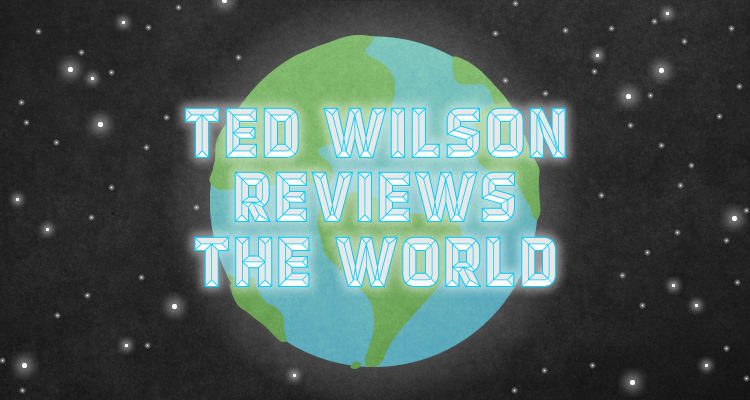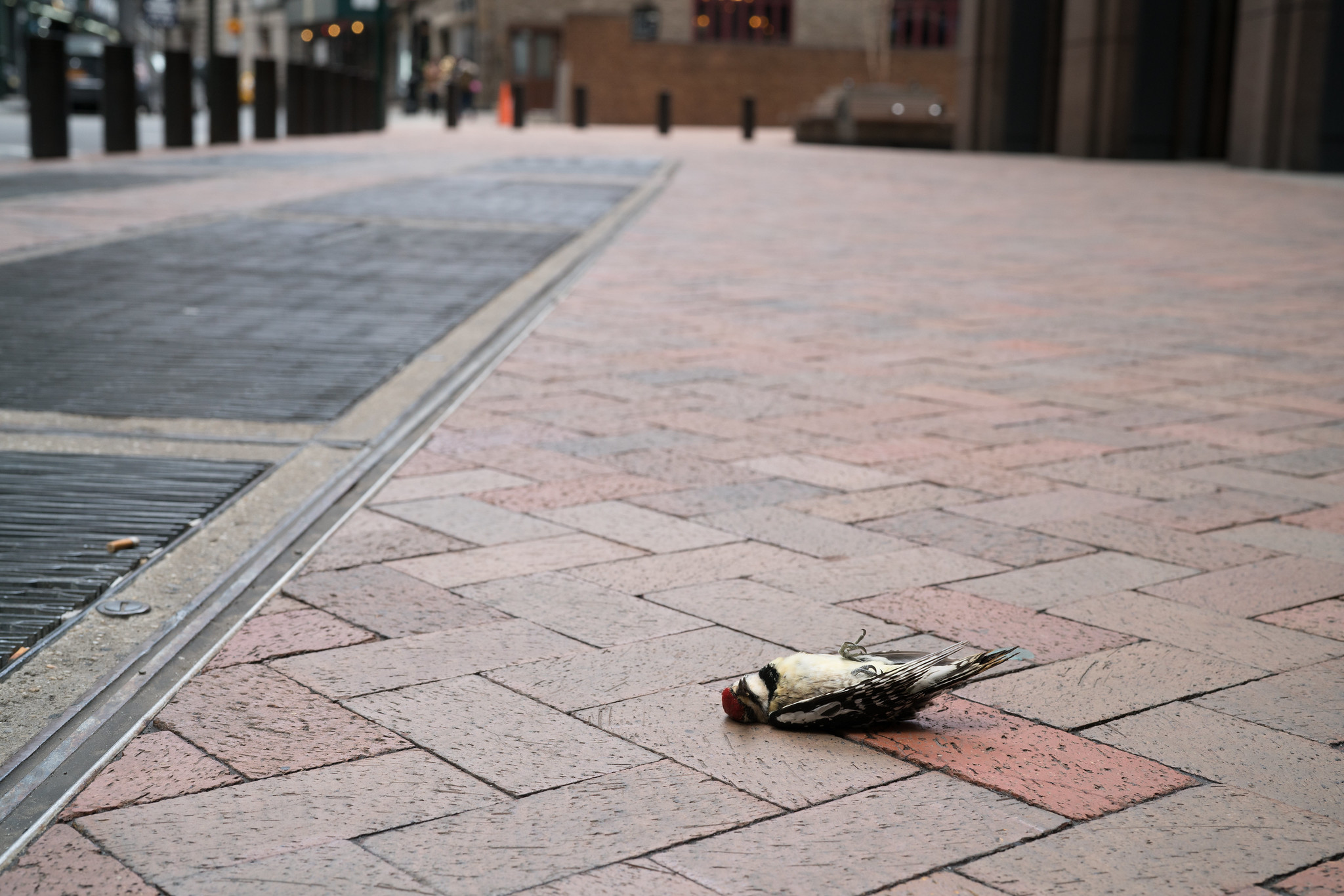essays
My Year in Re-Reading After 40: “You’re Ugly, Too” by Lorrie Moore
Revisiting a classic Lorrie Moore story

Revisiting a classic Lorrie Moore story
Author Court Merrigan’s fortieth birthday led him to take the philosopher Seneca’s advice and spend a year re-reading books already in his possession. The books chosen contain some spark of brilliance, howsoever questionable, that have stuck with him throughout the years. The caveats: these are books he’s only read once, that he still owns (no Amazon!), and he can’t read any commentary about them before or after re-reading. How will they measure up? And should they?
BEFORE RE-READING:
I’m writing this from a village named Namsap in southeastern Thailand, my wife’s hometown. This is relevant for several reasons, one of which might turn out to be technical in nature, e.g., “my sweat short-circuited my laptop’s motherboard.” Seriously, Thailand in the rainy season is like living in a bowl of hot soup.
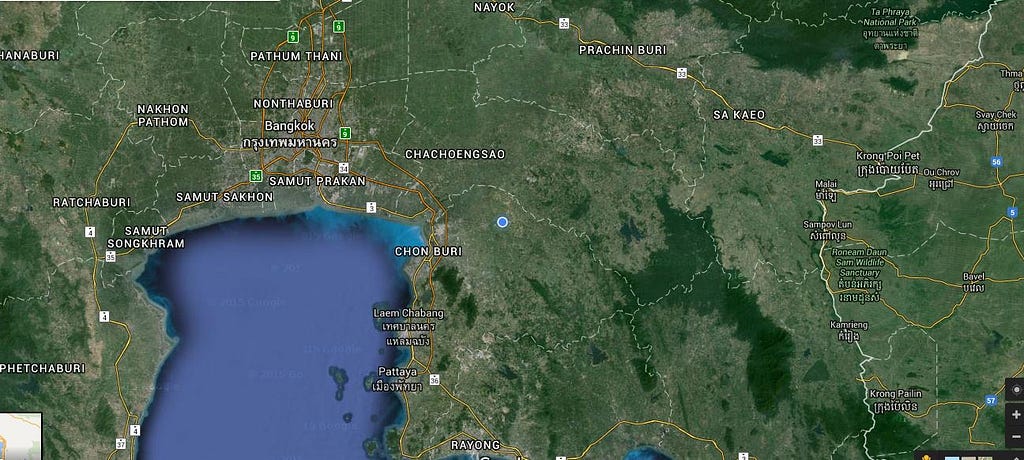
But my location is also relevant for reasons directly related to this essay. Namely, that I ended up here at all. Let me explain.
When you grow up a million miles from the city, you not only develop a finely-tuned fantasy world, you also develop highly mixed feelings towards those distant cosmopolitan locales. As a teenager, when I shrugged off the consolations of fantasy books, I placed my hopes in the city instead. And not just any city. Nearby Denver was a cowtown, as far as I was concerned. The other cities I’d been to were Omaha, Las Vegas, Albuquerque, Casper. (Yes, a short list.) Also nope. LA giant freeways and movie-star sidewalks impressed me, but that teeming metropolis also managed to feel somehow empty. No, sir, for a farm boy like me, there was really only city to aspire to: NYC.
Not that I actually made it there (in truth, I never even visited the joint till 2012, when I was 36, and I haven’t been back since). I did spend a year in Milwaukee, a city to be sure, though a dreary, cold one. And then I finished college in Omaha, a city once specifically on my no-fly list. I ended up there for reasons involving a girl and poor decision-making skills. But I digress.
Three years of college at Creighton University made me bound and determined to go as far, far away from Nebraska or anything like it as I could go, and two months after I graduated, I was on a plane for Japan. Eventually I landed in Thailand, where I met my wife, and my life as I now know it actually began. We live in the States these days, but fly back to Thailand as often as we can, so the kids can get to know their Thai relations and my wife can preserve her sanity.
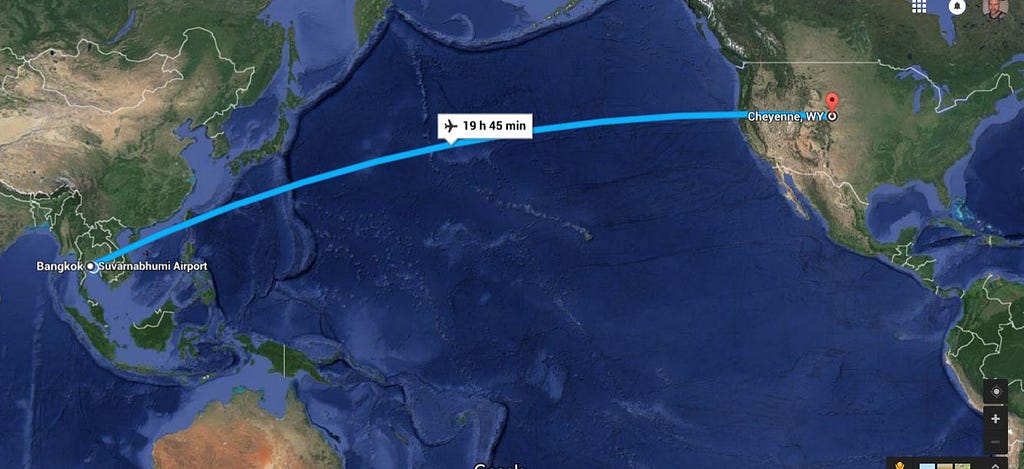
But back to Omaha, 1996. In a creative writing class, my teacher Brent Spencer assigned the short story “You’re Ugly, Too,” which appears in Lorrie Moore’s fine 1991 collection Like Life. He held it up as an example of all a short story could be. He wasn’t wrong, for reasons I’ll get into.
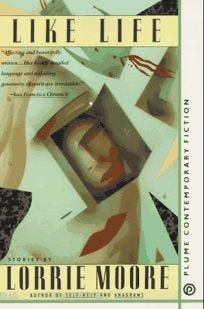
As with my previous two entries, my memory’s ragged on this one, but I do recall the story as wickedly funny, as Lorrie Moore stories often are. Moore became one of my writing heroes after reading this collection. Your heroes do things you never could, and I could never be as mordantly sardonic as I recall Moore being in this story.
I do wonder, however, now that everyone’s a snarkastic genius on Twitter or retweeting someone who is: will that humor stand up? Back in the dinosaur days of 1996, when Independence Day was the summer blockbuster and mailboxes sagged under the weight of free AOL CD-ROMs, genuinely funny people were hard to come by. You had to meet them in person or catch them on HBO. A story like “You’re Ugly, Too” stood out like a sharp gem in a tasteless manila river — mainstream “literary” fiction was just as dull then as it is now.
The subject matter of “You’re Ugly, Too” as I recall it is mundane; a sophisticated New Yorker relocates to take a teaching job in a bland Midwestern backwater (a thinly disguised Wisconsin, I believe, where Moore lived at the time as a professor at the university in Madison). She finds the quotidian requirements of the job and the narrow worldviews of her students hard to take. In particular I recall one of her students objecting to learning about all those states Back East “because they’re all so small and squiggly.”
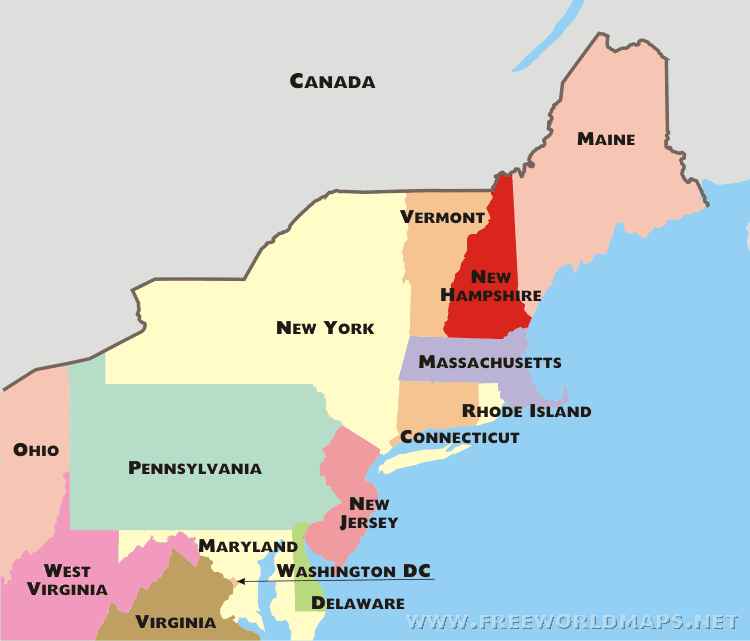
But when the narrator visits her sister back in New York, life there is no better. It’s all vaguely dissatisfying, somehow; where are the bright adventures we all were promised??? Nowhere, it would seem. Life is just sort of a dreary slog, and if you didn’t know it already, you will by the time you finish “You’re Ugly, Too.”
Despite the uninspiring premise and only reading it once, this story remained lodged in my mind for twenty years because of that aforementioned humor, which I think will strike anyone lucky enough to read Moore, but also because it struck deeply at that city-country divide that I felt myself so keenly.
I mean, of course a New York sophisticate would find life among my Midwestern brethren unbearable. At least she’s got a sense of humor about it! To me the story was a knife to the gut of my own longing — there I was stuck in Omaha, still a million miles from the (real) city. Back then, I’d have given anything to be able to look down my nose at my Midwestern brethren.
I’ve performed a one-eighty on such matters in the last two decades. I’ve been all over the world but am by choice a proud citizen of a tiny Wyoming town you’ve never heard of, and I’ve developed a minor hobby poking at purblind coastal elitists on Twitter. I hope the pendulum won’t have swung too far the other direction, and that I find myself as intensely disliking this exiled New Yorker as once I was envious. And I really hope the story is still funny!
AFTER READING
These days you hear a lot about privilege. The narrator of “You’re Ugly, Too,” a professor of history in her early 30s named Zoë (yes, spelled that way), is loopy with privilege. So drunk on it she doesn’t know what to do besides spin into angst over it.
I suppose it’s not exactly fair to hold a 25-year old story blamable for not being properly cognizant of a concept that’s only sprung into use in the last couple years. Still, though. The story is about a young-ish white woman who works as a professor, owns a home that she furnishes and re-furnishes as a hobby, has myriad romantic disappointments, and returns from Midwestern exile for brief, soul-nourishing (more on that later) visits back to New York, and yet can find happiness nowhere. It’s so hard, life!
Quote:
The trick to flying, Zoë always said, was never to buy a discount ticket and to tell yourself you had nothing to live for anyway, so that when the plane crashed it was no big deal. Then, when it didn’t crash, when you had succeeded in keeping it aloft with your worthlessness, all you had to do was stagger off, locate your luggage, and, by the time a cab arrived, come up with a persuasive reason to go on living.
Also, as will surprise you not one whit, “You’re Ugly, Too” was originally published in The New Yorker.
That said, and as those New Yorker editors no doubt noticed, this is a fine story by every technical standard imaginable. My old creative writing teacher was right about that. The dialogue is snappy and informative, the physical descriptions apt and poignant, and the pacing immaculate. Plus it’s funny. Man, is it! Here’s that part about little Eastern states I remembered so clearly:
Quote:
Her students were by and large good Midwesterners, spacy with estrogen from large quantities of meat and cheese. They shared their parents’ suburban values; their parents had given them things, things, things. They were complacent. They had been purchased. They were armed with a healthy vagueness about anything historical or geographic. They seemed actually to know very little about anything, but they were extremely good-natured about it. “All those states in the East are so tiny and jagged and bunched up,” complained one of her undergraduates the week she was lecturing on “The Turning Point of Independence: The Battle at Saratoga.” “Professor Hendricks, you’re from Delaware, originally, right?” the student asked her.
“Maryland,” corrected Zoë.
“Aw,” he said, waving his hand dismissively. “New England.”
Lorrie Moore doesn’t use humor merely to be funny: the jokes and irony mask the deeply-felt pain of Zoë, adrift in Illinois, adrift in her own life. A highly effective approach. If we can’t feel Zoë’s pain, exactly, we sure are certain that it is there.
In many respects, too, this story points to the ways in which we genuinely knew less before the internet: for a professor of history, Zoë seems to have a startlingly limited understanding of the historical context in which she finds herself. She doesn’t seem to question why she has “ended up” in Illinois, how the labor market of academia shifts its workers around with no less efficiency than a cattle feed yard. No wonder she, to cull a phrase, has ended up so alienated from her own labor!
These are things that anyone with even a marginal familiarity with academia today understands; graduate school grinds out hundreds of new graduates every year, desperate to take any job they can find. But we only know these things because of the internet, really; what is common knowledge these days would have been very hard to imagine in the early 90s. For Zoë, this is simply the way things are; she has to go where the work is, and her work happens to be in Illinois, and it’s impossible to imagine things being any other way.
But like I said, “You’re Ugly, Too” is technically correct in every facet. Except, perhaps, for those minor matters of plot and character development. As for a plot, there isn’t one; the smallest stabs at suspense are quickly snuffed out, and nothing much happens. Zoë herself ends the story the same woman as she began it, minus a potential gallbladder tumor or two. Anyone who remembers the 90s remember that ironic detachment was all the rage back then. You practically inhaled an inability to be sincere with the air you breathed. “You’re Ugly, Too” is a product of its times, when sentiment was too mushy to admit out loud.

Like an old Pearl Jam song on the radio with a killer hook you jam along to but never once think to search for on Spotify, “You’re Ugly, Too” plays all the right notes, but they don’t add up to much when they’re done. Where’s the anger, where’s the mystery, where’s the risk? By staying on the right side of every “literary” fiction convention I can think of, Moore’s story ultimately doesn’t add up to much. Ten thousand less well-executed stories just like it have swirled down into instant anonymity. What keeps “You’re Ugly, Too” above the waterline is its humor, and the fact that, for me, a portion of its subject matter just happened to be very close to my heart.
Yes, there was the casual disdain for the stolid Midwest, but for all its glittering glory, New York is itself only painted a slightly different shade of plaid. The problem here is Zoë, who takes herself everywhere she goes. I can only surmise I felt the slights to the Midwest so keenly back in my Omaha days because I had little, back then, to compare them to. Lorrie Moore was the worldly author, after all; she would know.
And that’s why the story stuck with me so long: by the time I realized where you are matters not at all compared to what you are, it was etched in my long-term memory. If I read it these days, I doubt I’d even finish, give or take a chuckle or two.
In short, this lightweight bit of re-reading didn’t yield up much in the way of insight. Your reading tastes always say more about you than about the reading itself, of course; I guess I’m at the stage of life where I don’t see much value in ironic detachment and a refusal to draw any hard lines. The story left me cold, I am sorry to report. Life’s too short, time waits for no man, etc. I found myself wishing hard that Zoë would see that, too.
DOG-EAR REPORT:
So while this story isn’t really my cup of tea any more, it still has some zingers. I count seven dog-eared pages. Not bad for a 25-page story!
The Pain of Property:
“Are you seeing anyone?” said Evan. “I’m asking for a particular reason, I’m not just being like mom.”
“I’m seeing my house. I’m tending to it when it wets, when it cries, when it throws up.” Zoë had bought a mint green house near campus, though now she was thinking that she shouldn’t have. It was hard to live in a house. She kept wandering in and out of rooms, wondering where she had put things.
Teacher of the Year:
“Maybe I sound whiny to you,” said the girl,” but I simply want my history major to mean something.”
“Well, there’s your problem,” said Zoë.
Hard-Earned Wisdom:
“Live and learn,” Earl murmured.
“Live and get dumb,” replied Zoë.
Next: a rewind to Henry Kissinger’s rain of terror in Cambodia (yes, rain.)





